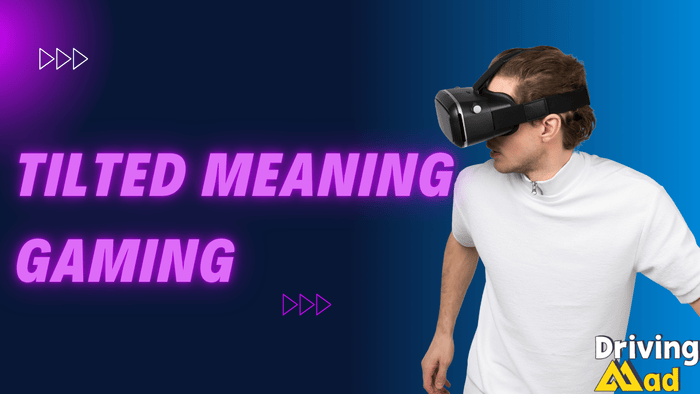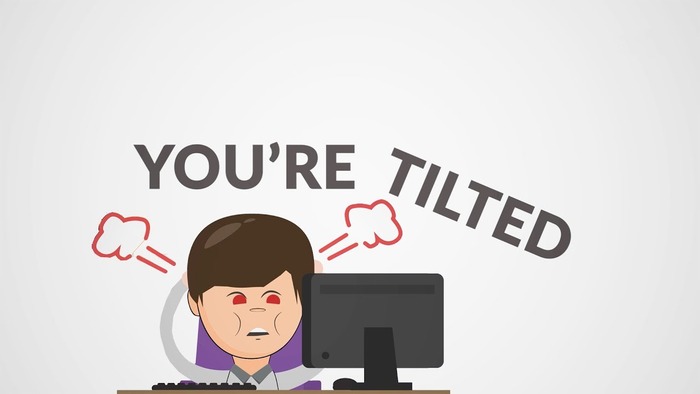Tilt in gaming occurs when a player feels upset or confused, which lowers performance.
Repeated losses or believing the game is unfair often cause it. Frustration leads to poor decisions and weak gameplay.
Many players face this problem, even the calmest ones. Tilt can make someone go from relaxed to smashing their keyboard in anger.
Gamers often deal with it, whether they feel it themselves or see streamers struggle.
Knowing about tilt is essential for anyone who takes gaming seriously. Let’s stay calm and learn more about this issue!

What Does Tilt Mean in Gaming?
In gaming, tilt is when frustration or confusion affects a player’s performance. It happens when someone feels unlucky or out of control, leading to bad decisions.
Even skilled players can start making reckless mistakes due to tilt.
When a player is on tilt, they might:
- Play too aggressively
- Abandon strategy to seek revenge
- Blame teammates or the game for losses
- Keep playing even when they need a break
- Feel physical signs like a fast heartbeat or sweating

Where Did the Term “Tilt” Come From?
The word “tilt” originally came from poker. It likely started with pinball, where players who tilted the machine to move the ball would get a penalty.
In poker, frustrated players would sometimes tilt the table. This act became a word describing emotional frustration leading to poor decisions.
As competitive gaming grew, the term spread into video games. Like poker players, gamers deal with luck, skill, and frustration.
“Tilt” became the perfect word for losing focus due to emotions.
Examples of Tilt in Different Games
Tilt happens in many games, exceptionally competitive ones. Here are some examples:
- MOBA Games: “Our mid-laner tilts after getting ganked three times.”
- FPS Games: “I’m on tilt tonight—can’t hit a single headshot.”
- Fighting Games: “He’s tilting after that perfect round, throwing random moves now.”
- Battle Royales: “I keep dying early, and now I’m completely tilted.”
- RTS Games: “That early rush ruined my strategy—I can’t focus anymore.”
- Sports Games: “He’s tilting after that offside call, making reckless plays.”

Games Where Tilt Is Common
People often notice tilt in highly competitive games, like:
- League of Legends – Long matches make tilt affect teamwork.
- Counter-Strike: Global Offensive – Losing key rounds can trigger tilt.
- Hearthstone – Random luck elements can frustrate players.
- Rocket League – Fast gameplay leads to quick tilt after mistakes.
- StarCraft II – Tilt feels more personal in one-on-one matches.
Related Gaming Terms
When talking about tilt, you might hear these words:
- Rage Quit: Leaving a game out of frustration.
- Salty: Feeling annoyed or frustrated.
- Tilt-proof: A player who stays calm under pressure.
- Mental Game: The psychological side of gaming.
- Comeback: Recovering from tilt to win.
- Mindset: A player’s mental approach to the game.
- Toxicity: Negative behavior often caused by tilt.
- Tilt Queue: Playing more games while tilted, leading to more losses.
- Untiltable: A player who never tilts.
- Malding: A mix of “mad” and “balding,” meaning extreme tilt.
- Tilt Management: Ways to control or recover from tilt.
- Cognitive Distortion: Irrational thinking that makes tilt worse.
Even professional players get tilted. The key is how you handle it.
When frustration builds up, take a deep breath, remind yourself it’s just a game, and step away for a short break.
Staying calm can help you play better and enjoy the game more.

